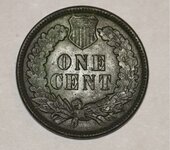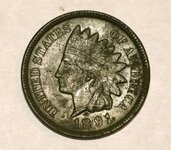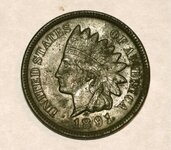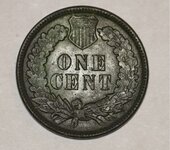IAsoldier
Hero Member
- Apr 8, 2008
- 941
- 218
- Detector(s) used
- Minelab Equinox 600 with 11 inch coil. BLuetooth head set and Minelab pin pointer. My back is the Minelab Explorer II w/ 12 x 9 NEL coil, Minelab pinpointer and Deep woods headphones.
- Primary Interest:
- All Treasure Hunting
Well its been a great week that all started Friday evening after school. Lately Ive been getting silver at least once per day and wheaties. I cant complain to much on the weather which has been great so far even for today. Now today I did what I normally do is head out to one of the local parks and beep it up and down the hills. Well it paid off I finally, found the key date in IH pennys which I was totally not expecting to find in the middle of no where. Now is there a best way to clean the 1877 with out damaging it and how do I send this off to NGC or PCGS for slabbing.
Update did a little bit of cleaning with a soft brush and warm water. The 1877 IH came out very nice and green I would grade it F-XF shows liberty but faded. The shield in back has full lines and all wheats shows. Also today a bank while cashing payroll check I got these 3 Proof Silver Quarters as change all mint mark of S . 2004-Texas,2006-Neb and 2010 Mount Hood
. 2004-Texas,2006-Neb and 2010 Mount Hood
Silver dimes, 1883 Seated, 1901 Barber, Mercurys 1918, 1936-D,
2 silver rings, one copper
Wheaties, 1917,19,41-D,57-D
Key dated 1877 IH
Update did a little bit of cleaning with a soft brush and warm water. The 1877 IH came out very nice and green I would grade it F-XF shows liberty but faded. The shield in back has full lines and all wheats shows. Also today a bank while cashing payroll check I got these 3 Proof Silver Quarters as change all mint mark of S
 . 2004-Texas,2006-Neb and 2010 Mount Hood
. 2004-Texas,2006-Neb and 2010 Mount HoodSilver dimes, 1883 Seated, 1901 Barber, Mercurys 1918, 1936-D,
2 silver rings, one copper
Wheaties, 1917,19,41-D,57-D
Key dated 1877 IH
Attachments
Upvote
3


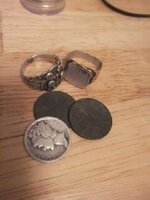
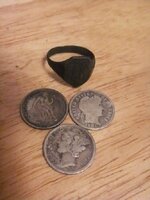
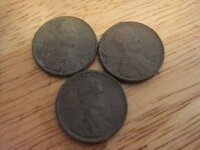
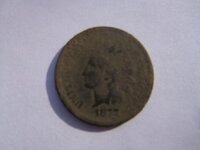
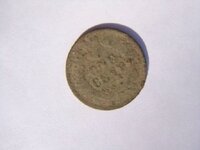
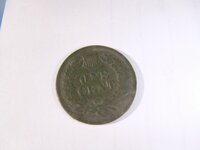
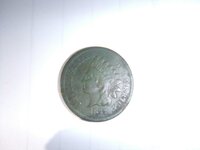
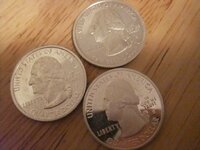



 nice IH
nice IH